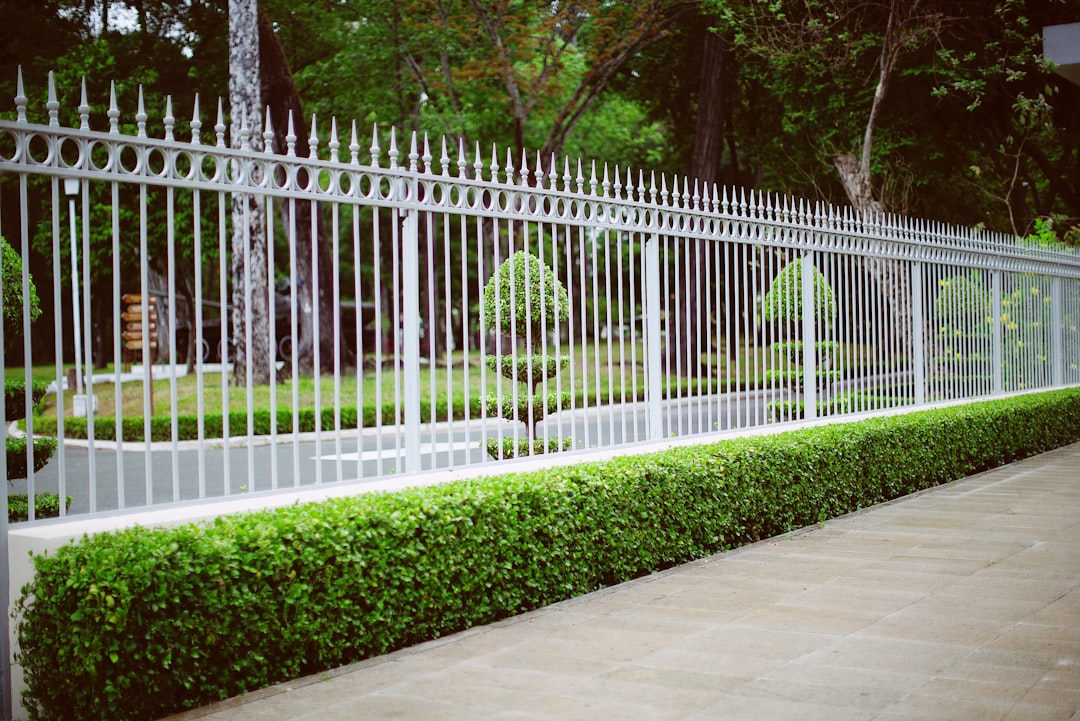Choosing the right fence for industrial or commercial spaces involves balancing safety, security, and aesthetics. A Fence Company offers diverse options like durable chain link fences, high-security concrete/steel barriers, and decorative metal fences. Popular materials include steel (durable but costly), wood (budget-friendly but requires maintenance), and vinyl (low-maintenance but less secure). Fence companies must consider client needs, project goals, budget, security requirements, and desired visual impact to provide the perfect fencing solution.
“Fencing is more than just a boundary; it’s a security measure, an aesthetic enhancement, and a functional necessity for industrial and commercial spaces. This comprehensive guide explores the world of fencing solutions tailored for these specific environments. From robust industrial chains to custom-designed commercial fences, we delve into the diverse materials, installation practices, and innovative designs that define this sector. Whether enhancing security or boosting curb appeal, choosing the right fence is a critical decision. As a leading fence company, we offer insights to help you navigate this landscape.”
- Types of Fencing for Industrial and Commercial Spaces
- – Overview of different fence materials suitable for industrial/commercial settings (e.g., chain link, steel, wood, vinyl)
- – Advantages and disadvantages of each material type
Types of Fencing for Industrial and Commercial Spaces

When it comes to securing industrial and commercial spaces, choosing the right fencing is essential for safety, security, and aesthetic appeal. A reliable fence company offers a range of options tailored to different needs. Among the popular choices are chain link fences, known for their strength and affordability, making them ideal for large-scale applications like warehouses and manufacturing plants.
For more secure environments like high-security facilities or commercial complexes, concrete or steel barriers offer superior protection against intrusion. On the other hand, metal decorative fences can enhance the look of commercial spaces while providing a robust barrier. These options cater to both functionality and design, ensuring businesses find the perfect fencing solution for their specific requirements.
– Overview of different fence materials suitable for industrial/commercial settings (e.g., chain link, steel, wood, vinyl)

In industrial and commercial settings, the choice of fence material plays a crucial role in ensuring both security and aesthetics. Popular options include chain link fences, renowned for their strength and affordability, making them ideal for expansive perimeters or areas requiring clear visibility. Steel fences are another robust choice, offering superior durability and resistance to potential breaches, perfect for securing sensitive spaces.
For a more natural look, wood fences are a preferred option, providing a classic aesthetic appeal. Vinyl fencing is also gaining popularity due to its low maintenance requirements and ability to mimic the appearance of other materials. When selecting a fence material, consider factors such as budget, desired level of security, and visual impact to align with your specific industrial or commercial needs. A reputable fence company can guide you in making an informed decision based on these criteria.
– Advantages and disadvantages of each material type

When it comes to industrial and commercial fencing, material choice is a critical decision for any fence company. Steel is a popular option due to its strength and durability, making it ideal for high-security applications and withstanding harsh weather conditions. However, it can be more expensive than other materials and may require regular maintenance to prevent rusting.
Wood offers a more affordable alternative, known for its natural aesthetic appeal. It’s versatile, easy to work with, and provides good privacy. Yet, wood is susceptible to rot, pests, and extreme weather, necessitating frequent replacement and upkeep. Vinyl fencing is another low-maintenance option, resistant to rot, rust, and decay. Its versatility allows for various styles, but it may not offer the same level of security or durability as steel and can be more prone to damage from heavy impact.
When it comes to securing industrial and commercial spaces, choosing the right fencing is paramount. By considering factors like durability, aesthetics, and budget, businesses can select from a variety of fence materials such as chain link, steel, wood, or vinyl offered by leading fence companies. Each material has its own advantages and disadvantages, allowing for tailored solutions that balance security, cost-effectiveness, and visual appeal. Ultimately, the right fencing can enhance safety, protect assets, and contribute to the overall look and feel of any industrial or commercial property.
